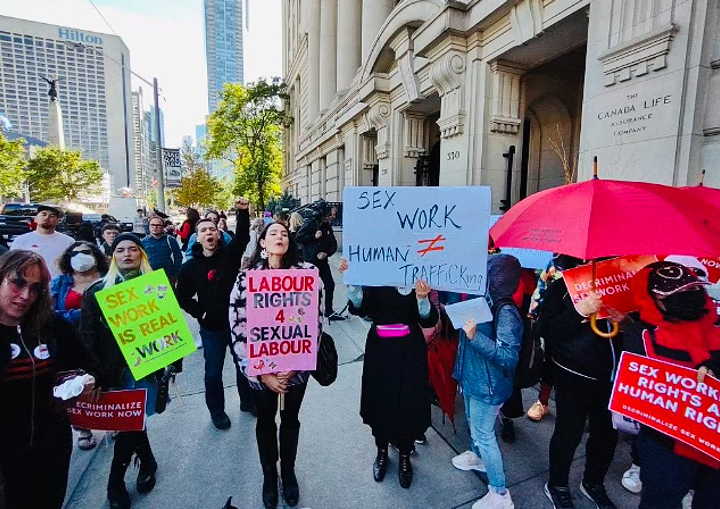October 28, 2022
Last month, the Canadian Alliance for Sex Work Law Reform (CASW), which includes 25 sex worker organizations, made history by challenging the Protection of Communities and Exploited Persons Act (PCEPA), which the group argues is inhumane.
According to a press release by the group, this case “… is the first constitutional challenge to PCEPA provisions initiated by sex workers, and the first to challenge all the provisions individually and together arguing they violate sex workers’ human rights to dignity, health, equality, security, autonomy and safety of people who work in the sex industry, which includes their right to safe working conditions,” the group said in a press release.
Below is a timeline of everything that’s happened so far.
TIMELINE
December 2013: Supreme Court of Canada renders its decision in Bedford v. Canada, striking down previously oppressive laws that criminalized prostitution.
December 2014: Canada passes the Protection of Communities and Exploited Persons Act, which employs the “Nordic Model,” criminalizing the purchase of sex, communication for the purpose of selling sex, gaining material benefit from sex, and advertising sexual services.
October 4 2022: The Canadian Alliance for Sex Work Law Reform begins arguing in a Toronto courtroom that the PCEPA endangers the health and safety of sex workers by cultivating stigma, encouraging violence, and endangering safe consent. They also argue that it violates the Canadian Charter of Rights and Freedoms.
Over the course of a few days, the court hears testimony from sex workers who feel their livelihoods and safety have been compromised by the PCEPA. The CASWLR also submits over 12,000 pages of research-based evidence demonstrating that Canada’s current legal framework regarding prostitution does not fulfill its original purpose of reducing sex work, and, in fact, only makes it dangerous.
The group’s goal is is to eventually decriminalize sex work in Canada, first by convincing the Ontario Superior court that the PCEPA is unconstitutional, after which they can bring their case to the Appeal Court and eventually the Supreme Court.
Attorney General David Lametti has 120 days to respond to the CASWLR’s recommendations.
October 7, 2022: The Sex Work Autonomous Committee (SWAC) gathers in front of the Montreal Courthouse in a rally to support the CASWR’s constitutional challenge to current Canadian sex work laws.
Click here for a more detailed look at The Canadian Alliance for Sex Work Law Reform’s case.

Canadian sex workers and allies rally to repeal PCEPA. @CDNSWAlliance on Twitter
DSW Newsletter #41 (October 2022)
Canadian Sex Workers Are Making History

Harm Reduction and Sex Work

SESTA/FOSTA Explained

DSW Presents at the National Harm Reduction Coalition’s Biennial Conference

